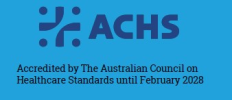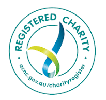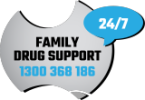| Donate | Become a Member | Resources |
SUPPORT LINE 24/7
1300 368 186 |
Drug Testing Gives False Hope & Dangerous Message
Family First (NZ) says that lobbying to allow drug use and drug testing at music festivals is flawed and dangerous, and is primarily being used by drug-friendly groups as a wedge to normalise drug use. Pill testing also does not - and cannot - guarantee that the drug being taken will not cause any physical or mental harm or death to the individual consumer. It also cannot account for the individual’s physiological response to each drug.
“In October, police confirmed that the concertgoers who were hospitalised in a critical condition during the Listen In event at Mt Smart Stadium had consumed MDMA. These drugs would have been given the ‘green light’ by drug testing,” says Bob McCoskrie, National Director of Family First NZ.
“Pill testing cannot test for use of other drugs. Pill testing cannot test for individual allergic-like reactions. Pill testing onsite cannot test for dose. Pill testing is incapable of preventing home deaths. If pill testing is pursued with government approval, the inevitable result will be more people willing to use the substance on the false assumption that they are now safe and publicly acceptable.”
Drug-Free Australia has provided research showing that according to the medical literature the accelerating number of Australian deaths from ecstasy are mostly not from overdosing, nor, according to coroners’ reports, are they due to impurities in party pills - but rather from individual reactions to drugs. A group of friends can all ingest the same amount but only one might die. An important study of 392 Australian MDMA-related deaths between 2001 and 2018 found that it was either ecstasy itself, or ecstasy co-consumed with alcohol, cocaine or amphetamines that caused each death. 29% of the deaths were from accidents such as drownings or car accidents caused by ecstasy intoxication. No deaths were from dangerous impurities or contaminants, and no deaths were nominated from other synthetic drugs mixed with MDMA in pills. A majority of deaths were from normal recreational doses of ecstasy, seeing as the science on MDMA indicates that ecstasy overdoses are rare.
As Australian Toxicologist Andrew Leibie, said in late-2017, “Public statements made by politicians that the trial would help ‘keep people safe’ were potentially misleading. MDMA is not a safe drug… The whole concept is based on the false assumption that if you do know what you’re taking, it is safe – something that is absolutely untrue.”
A recent study by Western Australia’s Edith Cowan University found that while first time users at festival might be more cautious, prior ecstasy users were only more likely to reduce their harm intentions if the ecstasy contained a toxic contaminant, not if the test revealed a high dose or an inconclusive result. The researchers said that this finding is important because some of the recent ecstasy-related deaths at festivals in Australia which have been linked to high doses of ecstasy. Additionally, if the participant was a prior ecstasy user who was also high in sensation seeking, then they were at the greatest risk of harm, even after participating in the pill test.
“At the same time as we encourage and adopt alcohol-free and smoke-free public events, having drug-free music festivals is a health and safety approach based on best practice. Testing won’t protect users because there is no such thing as a completely safe drug.”
“Pill testing will be seen by many younger people especially as a clear endorsement of drug use. It sends a message that illicit drugs are acceptable and can be ‘safe’, and will worsen harmful drug use so that more lives will be put at risk with the belief that the drug they are taking is somehow ‘safe’.”
Melvin Benn, Festival Republic's managing director, UK’s largest festival organiser which organises Reading and Leeds Festivals, among others, said “Determining to a punter that a drug is in the ‘normal boundaries of what a drug should be’ takes no account of how many he or she will take, whether the person will mix it with other drugs or alcohol and nor does it give you any indicator of the receptiveness of a person’s body to that drug… There are no safe illegal drugs.”
“Pill testing sounds well-intentioned, but behind the smokescreen is simply another ‘facilitated’ ill-informed decision to consume illicit drugs. Festival-goers should enjoy the music and stop playing Russian roulette with drugs and with their lives,” says Mr McCoskrie.
Posted by Drug Free Australia
Posted on behalf of Tony Trimingham OAM, CEO and founder of Family Drug Support:
The arguments mounted against pill testing in this media release are dangerous for many reasons.
First, it assumes that by saying drug use is illegal, it is, therefore, bad – laws are not set in stone for a reason, that is because they need to change as our knowledge and understanding grow. One can only imagine the harm so many previous laws would cause today if still on the books. Laws need to reflect the community we live in not the fanatical ideology of a few.
Secondly, telling people to stop using drugs will not prevent drug use – nor will any prevention program for that matter, that is why we have harm reduction in place – because we live in the real world. If you know of any such 100% effective drug prevention programs, please enlighten us all.
Thirdly, your assessment of pill testing services ignores the critical engagement of health professionals with people about to use drugs – do you honestly believe that public health is best addressed by not talking to people but rather driving them away with an ever-increasing police presence?
Perhaps Drug Free Australia could also reply to questions that were publicly posed to you many months ago by Harm Reduction Australia:
1. What policies does Drug Free Australia (DFA) propose to prevent all drug use?
2. What policies does DFA propose if people choose to use a drug?
3. What consultation processes, and with whom, does DFA undertake to develop its policies?
4. Does DFA believe that alcohol is a drug? If so, does it also support the prohibition of alcohol?
5. Does DFA believe that tobacco/nicotine is a drug? If so, does it also support the prohibition of tobacco/nicotine?
Your responses would be helpful in understanding the basis of your continual attacks on public health programs.
Family Drug Support Australia
Supporting families and friends of people who use substances as well as bereaved families in Australia.
SUPPORT LINE (24 Hours - 7 Days)
Phone: 1300 368 186
Meetings & Events
Organisation

© Family Drug Support Australia / PO Box 7363 Leura NSW 2780
ABN 49 081 764 258 / Privacy Policy / Website by Collaborative


